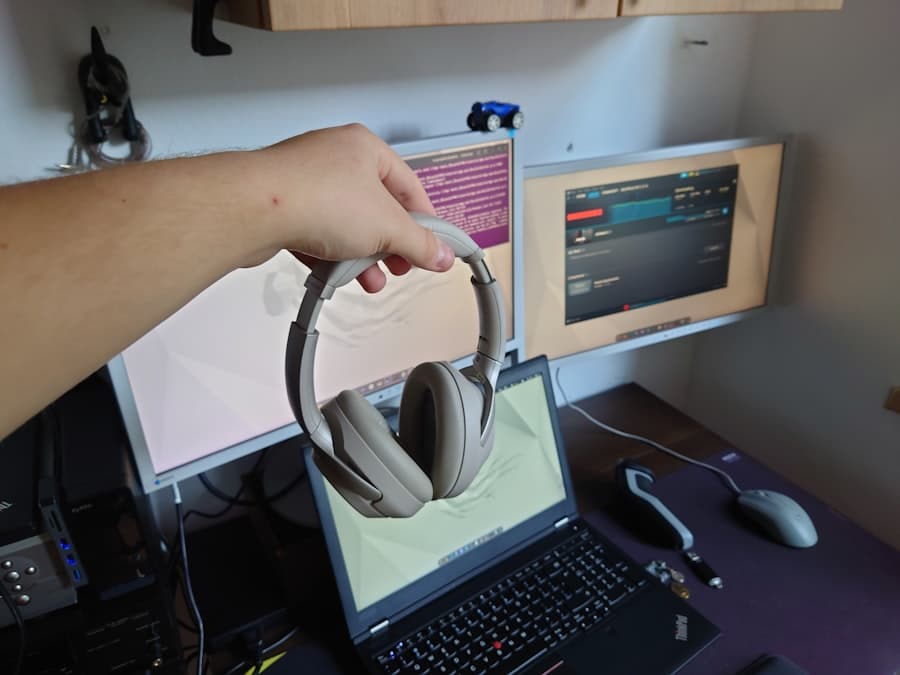Global health crises have become increasingly prevalent in the interconnected world of the 21st century. These crises can arise from various sources, including infectious diseases, environmental changes, and social determinants of health. The COVID-19 pandemic is a stark reminder of how quickly a localized health issue can escalate into a global emergency, affecting millions of lives and straining healthcare systems worldwide.
The complexity of these crises often necessitates innovative approaches to understanding and managing their impacts. As public health officials and researchers grapple with the multifaceted nature of these challenges, the need for effective modeling tools becomes paramount. The traditional methods of epidemiological modeling, while valuable, often fall short in capturing the dynamic interactions between various factors that contribute to health crises.
This has led to a growing interest in alternative modeling techniques, including the use of games. Game-based modeling offers a unique perspective by simulating real-world scenarios in an interactive environment, allowing stakeholders to explore potential outcomes based on different variables and decisions. This approach not only enhances understanding but also fosters collaboration among diverse groups, including policymakers, healthcare professionals, and the general public.
Key Takeaways
- Global health crises pose significant challenges to public health systems and require effective modeling and response strategies.
- Games play a crucial role in modeling global health crises by simulating various scenarios and testing potential interventions.
- Examples of games used for modeling global health crises include Pandemic, Plague Inc., and the use of virtual reality simulations.
- Benefits of using games for global health crisis modeling include engaging a wide audience, testing different strategies, and identifying potential gaps in response plans. However, limitations include oversimplification of complex scenarios and the need for accurate data input.
- Game-based modeling has the potential to impact public health policies by informing decision-making, resource allocation, and preparedness strategies. However, ethical considerations must be taken into account.
The Role of Games in Global Health Crisis Modeling
Games serve as powerful tools for simulating complex systems, particularly in the realm of global health crises. By creating immersive environments where players can engage with various scenarios, games allow for the exploration of intricate relationships between health determinants, policy decisions, and population behaviors. This interactive format encourages participants to think critically about the implications of their choices and the potential consequences on public health outcomes.
In essence, games transform abstract data into tangible experiences that can be more easily understood and analyzed. Moreover, games can facilitate the testing of hypotheses and strategies in a risk-free setting. For instance, public health officials can use game simulations to evaluate the effectiveness of different intervention strategies during an outbreak.
By manipulating variables such as vaccination rates or social distancing measures within the game, stakeholders can observe how these changes impact disease transmission dynamics. This iterative process not only aids in refining public health strategies but also enhances preparedness for future crises by providing insights into potential challenges and opportunities.
Examples of Games Used to Model Global Health Crises

Several notable examples illustrate the application of games in modeling global health crises. One prominent example is “Pandemic,” a cooperative board game where players work together to stop the spread of infectious diseases across the globe. While primarily a recreational game, “Pandemic” has been utilized in educational settings to teach players about disease transmission, the importance of collaboration, and strategic planning in public health responses.
The game’s mechanics encourage players to consider how their actions affect not only their immediate surroundings but also the global landscape. Another significant example is “Epidemic,” a digital simulation game developed by researchers at the University of Southern California. This game allows players to take on the role of public health officials tasked with managing an outbreak.
Players must make critical decisions regarding resource allocation, vaccination campaigns, and public communication strategies while navigating the complexities of an evolving epidemic. The game’s design incorporates real-world data and epidemiological principles, providing players with a realistic experience that mirrors actual public health challenges. In addition to these examples, serious games like “Flu Near You” have emerged as platforms for citizen engagement in public health monitoring.
This online game encourages users to report flu-like symptoms in their communities, contributing valuable data to public health agencies. By gamifying the reporting process, “Flu Near You” not only raises awareness about influenza but also empowers individuals to take an active role in disease surveillance.
Benefits and Limitations of Using Games for Global Health Crisis Modeling
The benefits of using games for global health crisis modeling are manifold. One significant advantage is their ability to engage diverse audiences in complex discussions about public health issues. By presenting information in an interactive format, games can capture the attention of individuals who may not typically engage with traditional scientific literature or policy discussions.
This increased engagement can lead to greater awareness and understanding of health crises among the general public. Additionally, games can foster collaboration among stakeholders from various sectors. Public health officials, researchers, and community members can come together in a shared gaming experience, allowing for the exchange of ideas and perspectives that might not occur in conventional settings.
This collaborative approach can lead to more comprehensive solutions that take into account the multifaceted nature of health crises. However, there are limitations to consider when using games for modeling purposes.
Simplifications made for gameplay can sometimes overlook critical factors that influence disease transmission or public response. Consequently, while games can provide valuable insights, they should be viewed as complementary tools rather than replacements for rigorous scientific modeling. Another limitation is the potential for misinterpretation of game outcomes.
Players may draw conclusions based on their experiences within the game that do not necessarily translate to real-world scenarios. This underscores the importance of providing context and guidance when using games as educational or modeling tools. Without proper framing, there is a risk that players may develop misconceptions about public health strategies or disease dynamics.
The Impact of Game-Based Modeling on Public Health Policies
Game-based modeling has begun to influence public health policies by providing evidence-based insights into effective strategies for managing health crises. Policymakers can leverage findings from game simulations to inform their decisions regarding resource allocation, intervention timing, and communication strategies during outbreaks. For instance, insights gained from a game simulation may reveal that early vaccination campaigns are crucial in curbing disease spread, prompting policymakers to prioritize immunization efforts in their response plans.
Moreover, games can serve as advocacy tools for public health initiatives. By illustrating the potential consequences of inaction or ineffective responses through engaging narratives and scenarios, games can mobilize support for necessary policy changes. For example, a game that simulates the impact of climate change on disease transmission may galvanize stakeholders to advocate for environmental policies that address these interconnected issues.
The interactive nature of games also allows for real-time feedback from players, which can be invaluable for policymakers seeking to understand community perceptions and behaviors during health crises. By analyzing player decisions and outcomes within a game context, public health officials can gain insights into how individuals might respond to various interventions in real life. This information can help tailor communication strategies and interventions to better align with community needs and preferences.
Ethical Considerations in Using Games for Global Health Crisis Modeling

Responsible Representation of Health Issues
One primary concern is the potential for exploitation or misrepresentation of sensitive health issues within game narratives. Developers must be mindful of how they portray diseases and public health responses to avoid stigmatization or fear-mongering that could harm affected communities. Ethical game design should prioritize accuracy and sensitivity while fostering empathy and understanding among players.
Data Privacy and Security
Another ethical consideration involves data privacy and security when using games for public health monitoring or research purposes. Games that collect user data must ensure that participants’ information is handled responsibly and transparently. Participants should be informed about how their data will be used and have the option to opt out if they choose. Ethical guidelines should be established to protect individuals’ rights while still allowing researchers to gather valuable insights from gameplay experiences.
Games should strive to reflect the experiences and perspectives of various communities affected by health crises. This inclusivity not only enriches the gaming experience but also enhances the relevance and applicability of findings derived from game-based modeling.
Future Directions in Game-Based Modeling for Global Health Crises
As technology continues to evolve, the future of game-based modeling for global health crises holds exciting possibilities. Advances in virtual reality (VR) and augmented reality (AR) could enhance immersive experiences, allowing players to engage with complex scenarios in even more realistic ways. For instance, VR simulations could enable users to navigate through a virtual city during an outbreak, making decisions about resource allocation while experiencing firsthand the challenges faced by public health officials.
Additionally, integrating artificial intelligence (AI) into game-based models could further refine simulations by allowing for adaptive gameplay based on player decisions and real-time data inputs. AI-driven models could analyze player behavior patterns and adjust scenarios dynamically, providing personalized experiences that reflect individual decision-making processes. Collaboration between game developers, public health experts, and researchers will be crucial in shaping future directions for this field.
By working together, these stakeholders can create games that not only entertain but also educate and inform policy decisions effectively. Furthermore, interdisciplinary partnerships can lead to innovative approaches that bridge gaps between gaming technology and public health research.
Conclusion and Implications for Global Health Crisis Management
The integration of game-based modeling into global health crisis management represents a promising frontier in understanding and addressing complex public health challenges. By harnessing the power of interactive simulations, stakeholders can explore diverse scenarios, test strategies, and engage communities in meaningful ways. As we continue to navigate an increasingly interconnected world marked by emerging health threats, leveraging innovative tools like games will be essential for enhancing preparedness and response efforts.
The implications for global health crisis management are profound; as we refine our understanding of how games can inform policy decisions and foster collaboration among diverse stakeholders, we pave the way for more effective responses to future crises. Embracing this approach requires a commitment to ethical considerations and inclusivity while remaining open to new technologies that can enhance our modeling capabilities. Ultimately, by integrating game-based modeling into our public health toolkit, we can better equip ourselves to tackle the challenges posed by global health crises head-on.
In a related article, Unlock a New World of Possibilities with the Samsung Galaxy Chromebook, the potential of technology to revolutionize education and work is explored. Just as games are being used to model global health crises, the Samsung Galaxy Chromebook offers a new way to engage with learning and productivity. This article discusses the features and benefits of this innovative device, highlighting how it can enhance the way we work and learn in the digital age.
FAQs
What are games being used for in modeling global health crises?
Games are being used to model global health crises in order to simulate and understand the spread of diseases, the effectiveness of public health interventions, and the impact of various factors on the outcome of a health crisis.
How do games help in understanding global health crises?
Games provide a platform for researchers and public health professionals to create simulations that can help in understanding the complex dynamics of global health crises. These simulations can help in testing different scenarios and strategies to better prepare for and respond to real-life health crises.
What types of games are being used for modeling global health crises?
Various types of games, including computer simulations, board games, and role-playing games, are being used to model global health crises. These games can range from simple interactive models to complex, data-driven simulations.
What are the benefits of using games to model global health crises?
Using games to model global health crises allows for a safe and controlled environment to test different strategies and scenarios without the real-world consequences. It also provides a way to engage and educate the public about the complexities of global health issues.
Are there any real-world examples of games being used to model global health crises?
Yes, there are several examples of games being used to model global health crises, such as the use of computer simulations to model the spread of infectious diseases like Ebola and the development of board games to educate communities about public health interventions.

